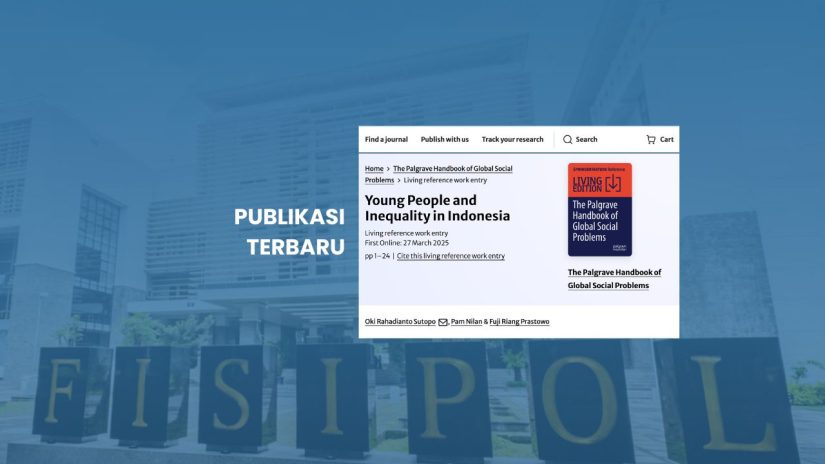
Two Sociology lecturers from the Faculty of Social and Political Sciences, Universitas Gadjah Mada (FISIPOL UGM), Oki Rahadianto Sutopo and Fuji Riang Prastowo, have contributed their latest academic work to an internationally renowned reference book, The Palgrave Handbook of Global Social Problems.
In their chapter entitled “Young People and Inequality in Indonesia”, they examine how social inequalities in Indonesia generate a series of social, economic, and political challenges for the younger generation. Despite Indonesia’s high universal literacy and numeracy rates, social mobility remains limited, and youth wages are still low—particularly since more than half of the domestic economy operates in the informal sector.
Their work also highlights the vulnerability of young people facing precarious digital gig work, limited access to services, and scarce opportunities for financial stability. Using a Scoping Review method, Oki and Fuji trace the dimensions of youth transition, culture, and generation from the birth of democracy after the 1998 Reformasi period to the present day. Variables such as class, gender, ethnicity, religion, and space are analyzed together to illustrate the condition of Indonesian youth—full of aspirations, yet constrained by multiple layers of structural barriers. Nevertheless, the authors emphasize that optimism for the future remains a significant trait among the younger generation.
The Palgrave Handbook of Global Social Problems is a major reference work in the social sciences, bringing together contributions from scholars across disciplines. The book addresses global social issues that cut across political, economic, and geographic boundaries, highlighting how they intersect under new geopolitical and market logics. With its multidisciplinary approach and thematic organization, the handbook provides perspectives at local, national, and transnational levels, making it a vital resource for social science education worldwide.
Through this contribution, Oki Rahadianto and Fuji Riang Prastowo affirm FISIPOL UGM’s role in providing critical analysis of youth challenges in Indonesia while reinforcing the university’s position in global academic conversations on contemporary social problems.
This chapter also strongly resonates with the Sustainable Development Goals (SDGs):
-
SDG 4 (Quality Education): addressing the paradox of high literacy yet limited social mobility.
-
SDG 8 (Decent Work and Economic Growth): examining precarious work, low wages, and informality faced by youth.
-
SDG 10 (Reduced Inequalities): highlighting class, gender, ethnicity, and spatial disparities that restrict opportunities for young people.
The chapter “Young People and Inequality in Indonesia” can be accessed at the following link: Book Chapter “Young People and Inequality in Indonesia”.
